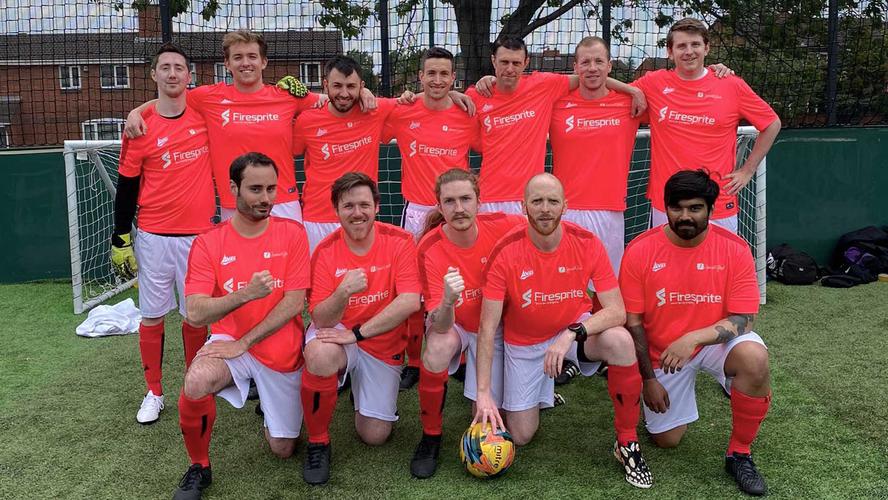Discussing inclusive company culture and considerations for the games industry
In our Pride at Firesprite series, we’re discussing community-driven questions and areas of significance and importance to our sprites.
Last week, our sprites explored games and gaming moments with LGBTQIA+ themes which resonated with them. Today they discuss what companies can do to foster more supportive, inclusive environments, and we spotlight important changes which our sprites would like to see in the games industry.
![]()
What’s something companies can do to foster a supportive culture?
“Make diversity and inclusion a core value of the company that is communicated and upheld at different levels and departments. Listen to the employees and adapt/improve policy and communications (internal/external). I think Firesprite does a good job at that from the recruitment process to the day-to-day operation.”
- Guilherme, Programmer
“To always listen out to what LGBTQIA+ people are saying and to take note, even if there is a lack of understanding. We often end up experiencing a different side to society that a lot of people don’t, be it being made to feel unwelcome by people who act fine until they find out your identity or little things people don’t think of that make people feel abnormal. This goes double for people in the community of colour as they experience multiple avenues of discrimination.”
- Louie, Artist
“This is done more and more, but publicly express their support to the LGBTQA+ community (and inclusivity to all people) on social media and on job proposals is a good initiative.”
- Julien, Gameplay Programmer
“If a company has the public image of being pro-LGBTQIA+, but employees are free to ignore this and it remains ambiguous if employees would face consequences for bigotry, that isn’t support. Companies have a responsibility to be extremely explicit regarding their support of LGBTQIA+ people in internal communications, make sure employees know that they have a right to be gendered and named correctly, that anti-LGBTQIA+ rhetoric is unacceptable, and that they will take breaches of this extremely seriously. Support isn’t about optics, it’s about making sure your LGBTQIA+ employees know they will be protected.”
- Han (she/they), Environment Artist
“Prosperity goes hand-in-hand with inclusivity. The more diversity in your workforce, the better and more interesting things you can make together. At the other end, the more people that can resonate with your product, the better. It’s a win-win, and it’s shocking so many places still haven’t figured this out. Even if the be-all and end-all of the games industry was to make money - and I don’t believe it is, but it would still make sense to encourage applicants from marginalised backgrounds to apply, to invite guest speakers to train and share knowledge about unconscious biases, and consider making games that centre around underrepresented cultures and communities, so long as those people were involved in making it.”
- Josh, Intermediate Programmer
“Honestly, just talking about the LGBTQ+ community. Little things like wishing folks a happy pride, taking part in the local parade… Making it a normal casual conversation topic like any other normalises it.”
- Miles, Junior UI Artist
![]()
What’s one thing that you’d like to see change in the industry?
“I would love it to become the norm that teams have diverse senior staff and leadership. This is slowly becoming a reality, and I think we are starting to see the impact of this trickle into mainstream games, where representation begins to feel less ’token’ and more authentic.”
- Han (she/they), Environment Artist
“I’d like to see more studios hire dedicated accessibility directors to help ensure that there’s someone dedicated to the role pushing it across any and all projects at a studio – games have made great strides with accessibility recently, but I’d love to see that high-level representation across studios to ensure it stays that way.”
- Miles, Junior UI Artist
“We’re in an awkward place where everybody generally agrees that inclusivity is morally the ‘right’ outcome, but we’re largely unsure of how to get there. With so many other, as-important factors to releasing a high-quality game, the type of investment needed to promote inclusivity is often seen as a barrier to progress that is therefore hopped over with box-ticking exercises. It would be good to see more studios making their investments in DEI earlier in the pipeline, instead of as an optional afterthought (in DLC).
The industry is also quite secretive and competitive, which is a barrier to inter-studio knowledge sharing. This has a knock-on effect to education - if we can’t share our processes with each other, or students, we can’t inspire and assure applicants from all walks of life that a career in the games industry is worthwhile. There are some fantastic organisations dedicated to bridging that gap, but until consumers also demand this of developers, we need studios to willingly opt-in to outreach projects.”
- Josh, Intermediate Programmer
“I think the industry would benefit from listening more often to what players want and what developers say. They often speak with their emotions, their feelings, and doing a real job of analysing this could help make games more appealing.”
- Julien, Gameplay Programmer
“Across the industry, I think we are still behind the curve. I would love to see improvements in gender pay gap, a bigger push for lgbt diversity and accessibility inclusion in and out of the games.”
- Guilherme, Programmer
A huge thank you again to our sprites for taking the time to explore these crucial topics. Don’t miss our next article, where the group will be sharing some touching personal reflections.




